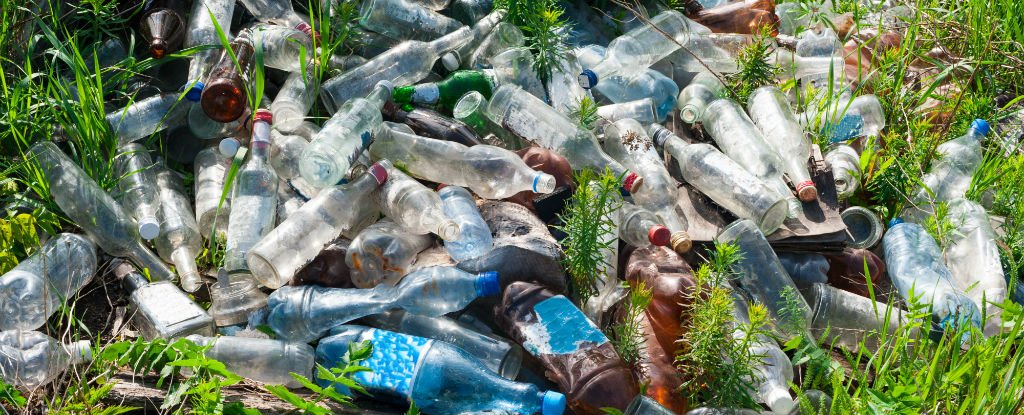This plastic is 100 percent reusable and petroleum-free.
A type of plastic that can be reheated for an hour and converted back to its original molecular state has been developed by researchers in the US, and being completely recyclable and reusable, petroleum-free, and able to broken down by living organisms, it could change everything about how we consume and reuse plastic.
Researchers at Colorado State University developed the polymer using a monomer called Gamma-butyrolactone (GBL), which is found in superglue removers and cleaning solutions. While the scientific literature has insisted for years that its chemical structure was too stable to convert into a plastic, the team went ahead and tried it anyway.
“‘Don’t even bother with this monomer,'” Chen said, quoting the conventional wisdom. “‘You cannot make a polymer out of it because the measured reaction thermodynamics told you so.’ We suspected that some of the previous reports were probably incorrect.”
Right now, every single of one of us is consuming around 90 kilos (200 pounds) of synthetic polymers every year, most of which isn’t biodegradable or recyclable. More than 270 million tonnes of plastic is produced each year, and 18 million of that ends up in our oceans each year, adding to the 243,978 tonnes that have already accumulated.
While many of the plastic bottles and packages you use display a ‘recyclable’ symbol, they can only be reused to an extent. They can be processed and repurposed to give the plastic material a longer lifespan, but it’s not possible to convert them back to their base elements to start again.
The number of biodegradable plastics currently on the market come with the same limitations – only partially recyclable, and the process to extends their lifecycle results in unwanted byproducts. “The big drive now is to produce biorenewable and biodegradable polymers or plastics,” says Chen. “That is, however, only one part of the solution, as biodegradable polymers are not necessarily recyclable, in terms of feedstock recycling.”
That what’s so remarkable about this new type of bioplastic. Named poly(GBL), you just need heat it to between 220 and 300 degrees Celsius for an hour, and that’s all it takes to convert it back to GBL. Once back in GBL form, the polymerisation process can be begin again – under conditions of around -40 degrees Celsius, the monomer molecules react to form polymer chains or three-dimensional networks.
Chemist Eugene Chen and his team experimented with their new polymer, making different molecular shapes by changing up the catalysts – both metal-based and metal-free varieties – in the solution and elements of the production process. While scientists attempted the same thing 10 years ago, they couldn’t figure out how to convert the GBL into a polymer at anything other than crazy-high levels of pressure.
Chen and his colleagues determined that poly(GBL) is “chemically equivalent” to the commercially used biodegradable bioplastic, P4HB, but much cheaper and easier to produce because P4HB can only be derived from living bacteria. They hope poly(GBL) will end up replacing P4HB in the future, and maybe even other types of plastic, if they can figure out how to make production costs comparable.
The results have been published in Nature Chemistry, and Chen has also filed a patent for the discovery.
https://www.sciencealert.com/scientists-have-discovered-the-world-s-first-completely-biodegradable-biopolymer

Leave a Reply